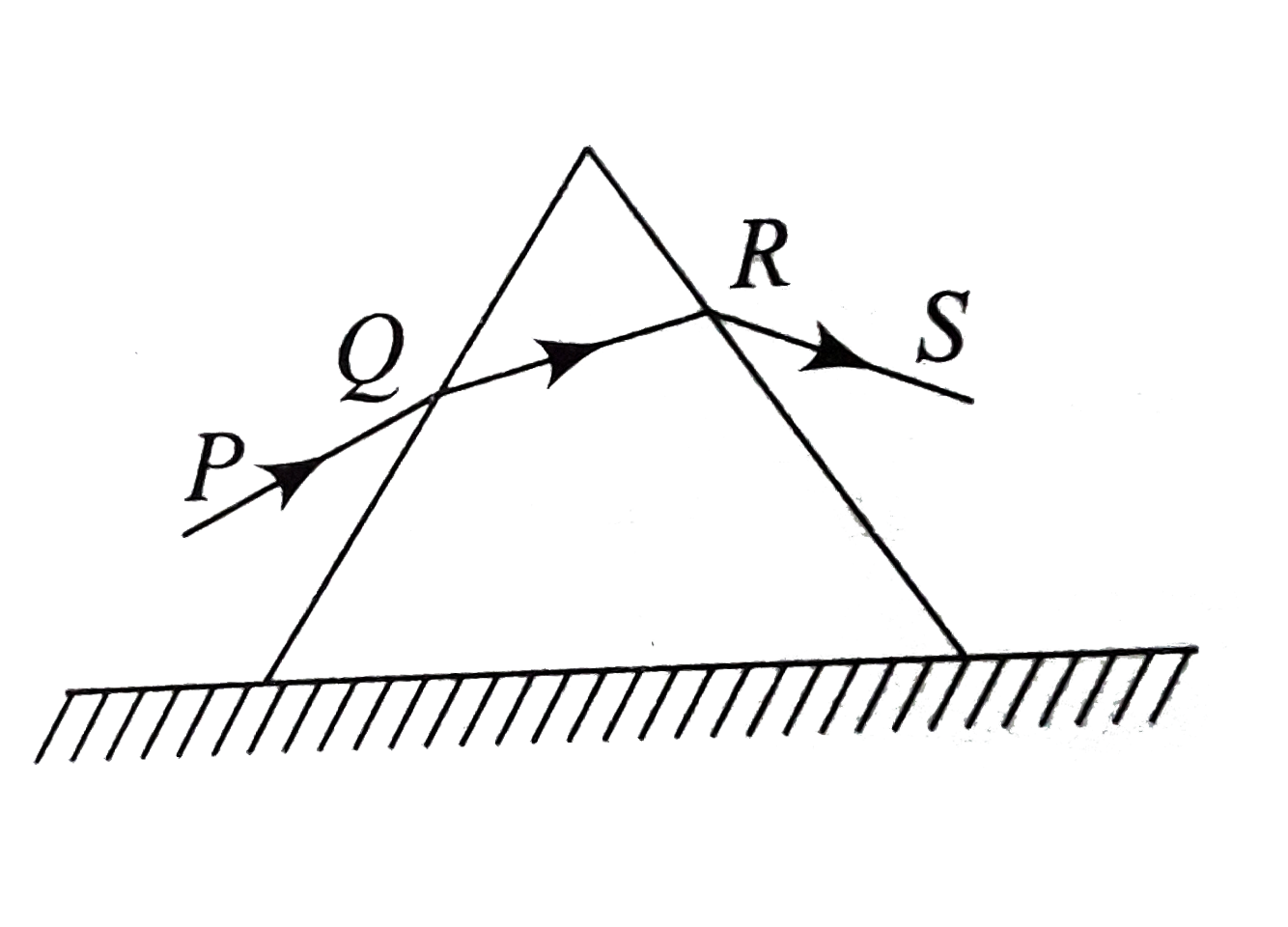Complete Solutions to Checkpoint 9.5 of chapter RAY OPTICS of Class 12 book with complete answers and questions
| Class 12 | PHYSICS |
| Chapter | RAY OPTICS |
| DC PANDEY NEET | Checkpoint 9.5 |
| Number Of Questions | 10 |
| Academic Year | 2023-24 |
A ray of light is incident at an angle of `60^(@)` on one face of a prism of angle `30^(@)`. The ray emerging out of the prism makes an angle of `30^(@)` with the incident ray. The emergent ray is
View SolutionWhen light rays are incident on a prism at an angle of `45^(@)`, the minimum deviation is obtained. If refractive index of the material of prism is `sqrt(2)`, then the angle of prism will be
View SolutionA ray of light passes through an equilateral glass prism in such a manner that the angle of incidence is equal to the angle of emergence and each of these angles is equal to 3/4 of the angle of the prism. The angle of deviation is
View SolutionAn equilateral prism is placed on a horizontal surface. A ray PQ is incident onto it. For minimum deviation,

View SolutionIn a thin prism of glass (refractive index 1.5), which of the following relations between the angle of minimum deviations `delta_(m)` and angle of prism r will be correct?
View SolutionThe refractive index of a prism for a monochromatic wave is `sqrt(2)` and its refracting angle is `60^(@)` for minimum deviation, the angle of indidence will be
View SolutionAngle of minimum deviation for a prism of refractive index 1.5 is equal to the angle of prism The angle of prism is `(cos 41^(@) = 0.75)`
View SolutionWhen light of wavelength `lambda` on an equilateral prism, kept on its minimum deviation position, it is found that the angle of deviation equals the angle the angle of the prism itself. The refractive index of the material of the prism for the wavelength `lambda` is
View SolutionDispersive power depends upon
View SolutionA thin prism `P_(1)` with angle`6^(@)` and made from glass of refractive index 1.54 is combined with another thin prism `P_(2)` of refractive index 1.72 to produce dispersion without deviation. The angle of prism `P_(2)` will be
View Solution
Checkpoint 9.5 questions and complete solutions for chapter RAY OPTICS of DC PANDEY PHYSICS (HINGLISH) of Class 12